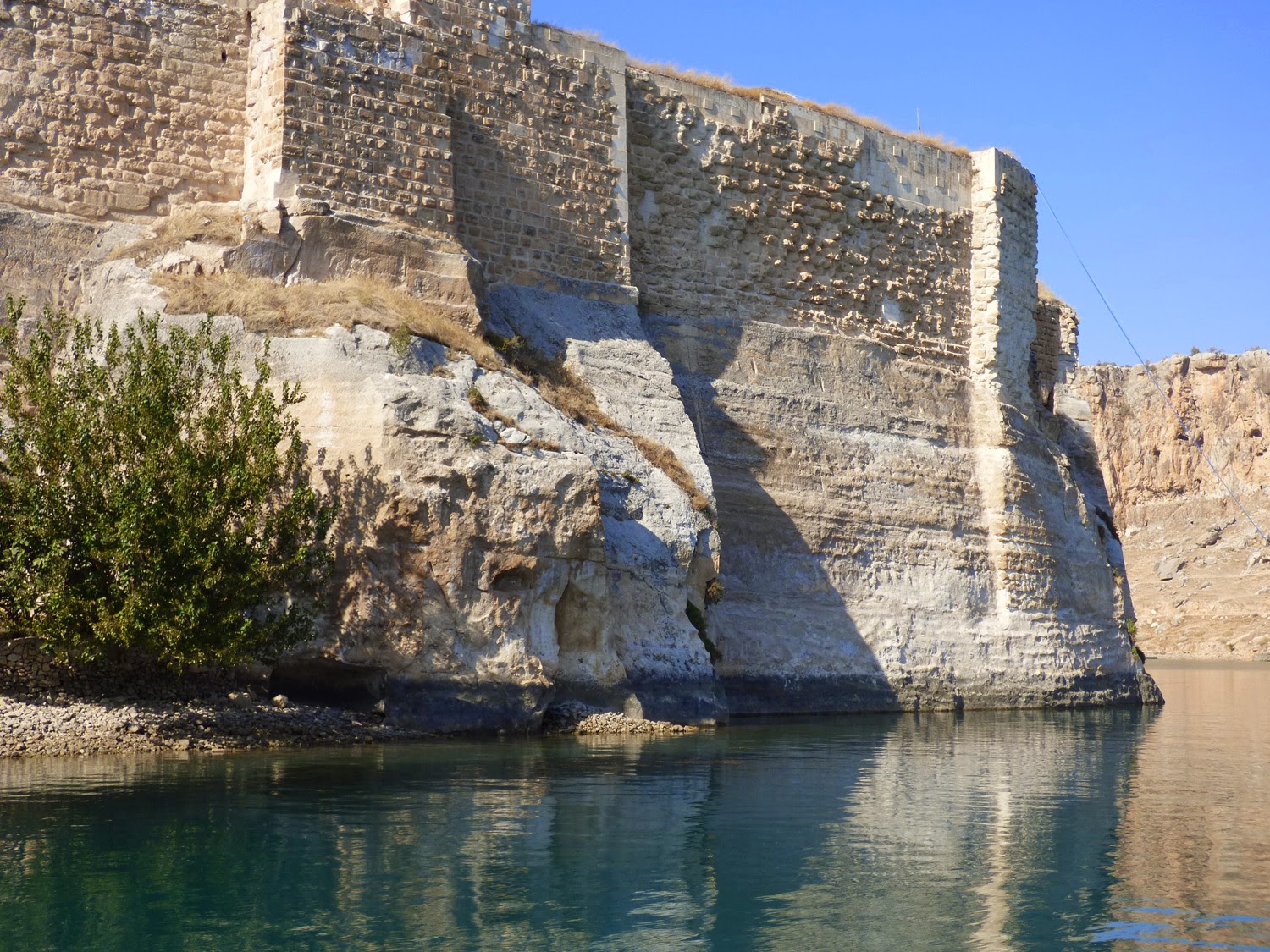On our way from Şanlıurfa to Gaziantep, we stopped for lunch and a cruise at Halfeti, one of the many places drowned by completion of the Ataturk and Birecik dams. Villagers were moved to higher ground and a new village (called New Halfeti) was built for them. We took a leisurely cruise up the Euphrates River:
Past Rumkale Fortress, at least 8th century BC, probably already there when the Assyrians first made mention of it, and occupied at the end by Armenians who built a monastery and church to St. Nerses there while living in nearby caves. It’s now far lower than it was in antiquity, as the lake is 50-60 meters deep.
Stone was cut from this cliff to build the complex, leaving a nice set of steps:
Around the bend is what remains of the drowned city of Halfeti, a lone minaret poking above the surface.
You can sort of see the roof of the mosque though the water, which is only a few feet above it:
Past Rumkale Fortress, at least 8th century BC, probably already there when the Assyrians first made mention of it, and occupied at the end by Armenians who built a monastery and church to St. Nerses there while living in nearby caves. It’s now far lower than it was in antiquity, as the lake is 50-60 meters deep.
Stone was cut from this cliff to build the complex, leaving a nice set of steps:
Around the bend is what remains of the drowned city of Halfeti, a lone minaret poking above the surface.
You can sort of see the roof of the mosque though the water, which is only a few feet above it:










No comments:
Post a Comment